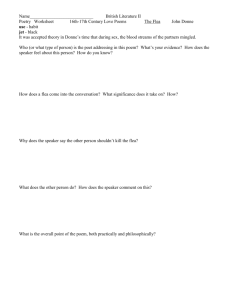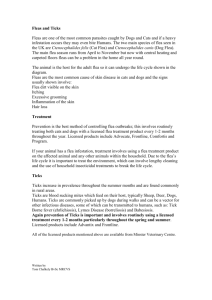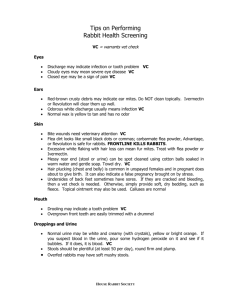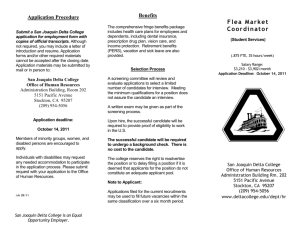The Flea by John Donne
advertisement
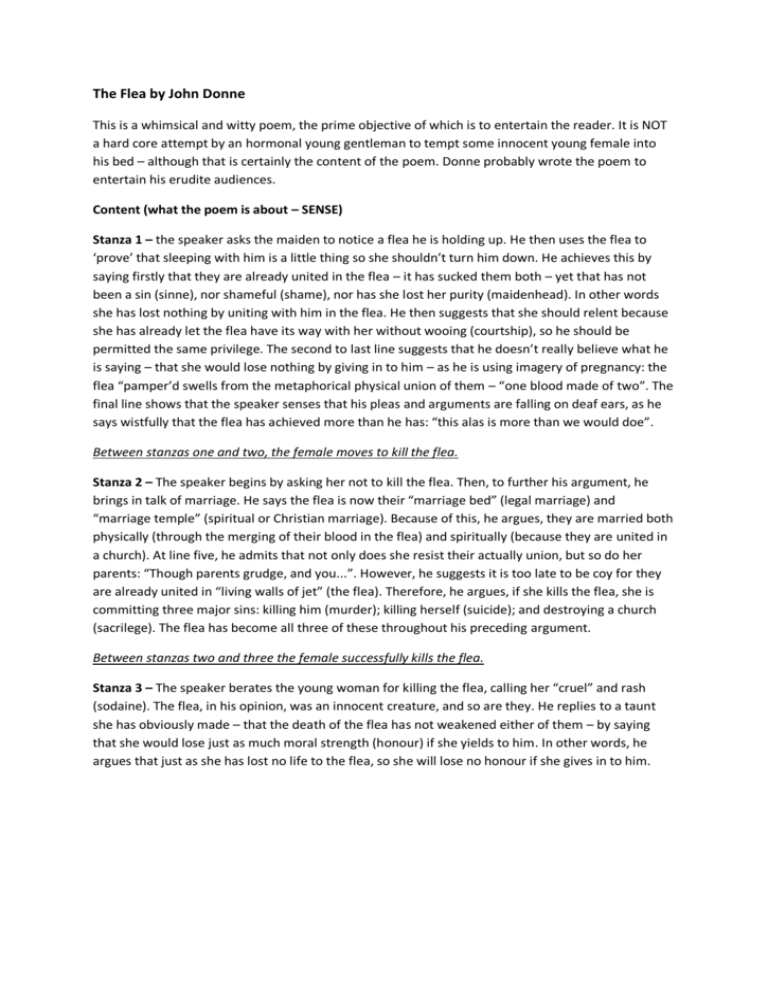
The Flea by John Donne This is a whimsical and witty poem, the prime objective of which is to entertain the reader. It is NOT a hard core attempt by an hormonal young gentleman to tempt some innocent young female into his bed – although that is certainly the content of the poem. Donne probably wrote the poem to entertain his erudite audiences. Content (what the poem is about – SENSE) Stanza 1 – the speaker asks the maiden to notice a flea he is holding up. He then uses the flea to ‘prove’ that sleeping with him is a little thing so she shouldn’t turn him down. He achieves this by saying firstly that they are already united in the flea – it has sucked them both – yet that has not been a sin (sinne), nor shameful (shame), nor has she lost her purity (maidenhead). In other words she has lost nothing by uniting with him in the flea. He then suggests that she should relent because she has already let the flea have its way with her without wooing (courtship), so he should be permitted the same privilege. The second to last line suggests that he doesn’t really believe what he is saying – that she would lose nothing by giving in to him – as he is using imagery of pregnancy: the flea “pamper’d swells from the metaphorical physical union of them – “one blood made of two”. The final line shows that the speaker senses that his pleas and arguments are falling on deaf ears, as he says wistfully that the flea has achieved more than he has: “this alas is more than we would doe”. Between stanzas one and two, the female moves to kill the flea. Stanza 2 – The speaker begins by asking her not to kill the flea. Then, to further his argument, he brings in talk of marriage. He says the flea is now their “marriage bed” (legal marriage) and “marriage temple” (spiritual or Christian marriage). Because of this, he argues, they are married both physically (through the merging of their blood in the flea) and spiritually (because they are united in a church). At line five, he admits that not only does she resist their actually union, but so do her parents: “Though parents grudge, and you...”. However, he suggests it is too late to be coy for they are already united in “living walls of jet” (the flea). Therefore, he argues, if she kills the flea, she is committing three major sins: killing him (murder); killing herself (suicide); and destroying a church (sacrilege). The flea has become all three of these throughout his preceding argument. Between stanzas two and three the female successfully kills the flea. Stanza 3 – The speaker berates the young woman for killing the flea, calling her “cruel” and rash (sodaine). The flea, in his opinion, was an innocent creature, and so are they. He replies to a taunt she has obviously made – that the death of the flea has not weakened either of them – by saying that she would lose just as much moral strength (honour) if she yields to him. In other words, he argues that just as she has lost no life to the flea, so she will lose no honour if she gives in to him.
